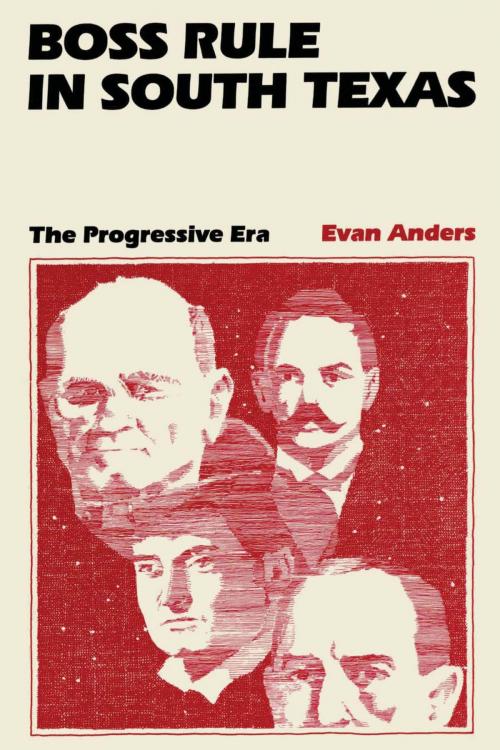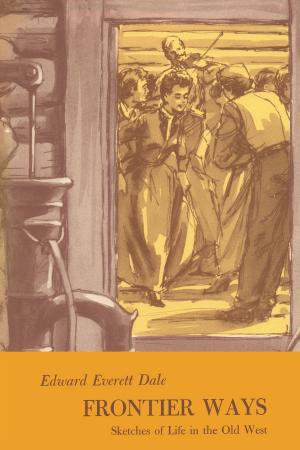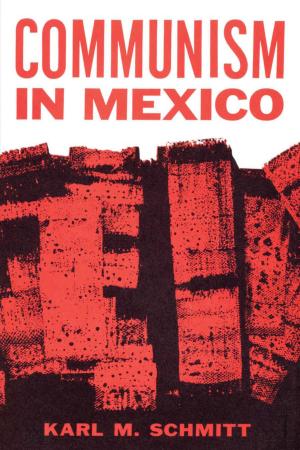Boss Rule in South Texas
The Progressive Era
Nonfiction, Social & Cultural Studies, Political Science, Government, Local Government, History, Americas, United States| Author: | Evan Anders | ISBN: | 9780292733374 |
| Publisher: | University of Texas Press | Publication: | November 18, 2013 |
| Imprint: | University of Texas Press | Language: | English |
| Author: | Evan Anders |
| ISBN: | 9780292733374 |
| Publisher: | University of Texas Press |
| Publication: | November 18, 2013 |
| Imprint: | University of Texas Press |
| Language: | English |
Four men played leading roles in the political drama that unfolded in South Texas during the first decades of this century: James B. Wells, who ruled as boss of Cameron County and served as leading conservative spokesman of the Democratic Party in Texas; Archer (Archie) Parr, whose ruthless tactics and misuse of public funds in Duval County established him as one of the most notoriously corrupt politicians in Texas history; Manuel Guerra, Mexican American rancher and merchant whose domination of Starr County mirrored the rule of his Anglo counterparts in the border region; John Nance Garner, who served the interests of these bosses of South Texas as he set forth on the road that would lead him to the United States vice-presidency. Evan Anders' Boss Rule in South Texas tells the story of these men and the county rings they shaped in South Texas during the Progressive Era. Power was the byword of the bosses of the Lower Rio Grande Valley, and Anders explores the sources of that power. These politicos did not shirk from using corrupt and even violent means to attain their goals, but Anders demonstrates that their keen sensitivity to the needs of their diverse constituency was key to their long-term success. Patronage and other political services were their lifeblood, and the allies gained by these ranged from developers and businessmen to ranchers and Mexican Americans, wealthy and poor. Besides examining the workings of the Democratic machines of four South Texas counties, Anders explores the role of the Hispanic populace in shaping the politics of the border region, the economic development of the Lower Rio Grande Valley and its political repercussions, the emergence and nature of progressive movements at both local and state levels, and the part played by the Texas Rangers in supporting bossism in South Texas.
Four men played leading roles in the political drama that unfolded in South Texas during the first decades of this century: James B. Wells, who ruled as boss of Cameron County and served as leading conservative spokesman of the Democratic Party in Texas; Archer (Archie) Parr, whose ruthless tactics and misuse of public funds in Duval County established him as one of the most notoriously corrupt politicians in Texas history; Manuel Guerra, Mexican American rancher and merchant whose domination of Starr County mirrored the rule of his Anglo counterparts in the border region; John Nance Garner, who served the interests of these bosses of South Texas as he set forth on the road that would lead him to the United States vice-presidency. Evan Anders' Boss Rule in South Texas tells the story of these men and the county rings they shaped in South Texas during the Progressive Era. Power was the byword of the bosses of the Lower Rio Grande Valley, and Anders explores the sources of that power. These politicos did not shirk from using corrupt and even violent means to attain their goals, but Anders demonstrates that their keen sensitivity to the needs of their diverse constituency was key to their long-term success. Patronage and other political services were their lifeblood, and the allies gained by these ranged from developers and businessmen to ranchers and Mexican Americans, wealthy and poor. Besides examining the workings of the Democratic machines of four South Texas counties, Anders explores the role of the Hispanic populace in shaping the politics of the border region, the economic development of the Lower Rio Grande Valley and its political repercussions, the emergence and nature of progressive movements at both local and state levels, and the part played by the Texas Rangers in supporting bossism in South Texas.















